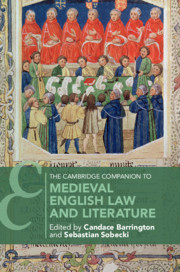Part II - Literary Texts
Published online by Cambridge University Press: 26 July 2019
Summary
Attempts to define treason often imply a debate about the very nature and limits of the law, and about the legal authority of governments. Medieval literature reflects such tensions, but also seems to invest imaginatively in the concept of treason to an extent that the history of law alone cannot explain. In this chapter it is argued that treason took on a new shape during the period from the 1260s to the 1340s, and that this was to have a lasting effect on its representation, not just in English law, but also in English culture more generally. This evolution was significantly conditioned by the political turmoils of the period, including the Second Barons’ War of 1264–7, Edward I’s campaigns in Wales and Scotland, Edward II’s conflict with Thomas of Lancaster, and Edward II’s eventual deposition in 1327. Literary texts testify to the legal paradigm-shifts provoked by these events, and to the differences of political principle that underlay them; but they themselves seem to have played a part in the very processes that led to the creation of these new paradigms. What we see in several late thirteenth- and early fourteenth-century texts is something of the cultural and political ferment in which new attitudes to treason were formed.
- Type
- Chapter
- Information
- Publisher: Cambridge University PressPrint publication year: 2019



